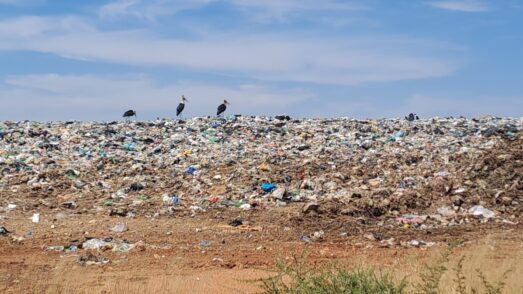
In November 2020, the University of Botswana and the Gaborone City Council signed a Memorandum of Understanding to share and exchange knowledge, resources, and information. Using the EPIC Model as their guide, the City Council and the University decided to work together to achieve development in multiple areas including waste management, environmental sustainability, and climate […]
Read More… from Botswana Tackles Wastewater Treatment and Solid Waste Management Collection Issues Through an EPIC Partnership with the University of Botswana
This project addressed two concerns of the City of Seaside: the need for a visual representation of Seaside’s demographics and representation within government, and a question about why the Hispanic and Latino population are not more involved at city meetings. These goals are important in informing the city’s 2040 general plan: seeing and understanding the […]
Read More… from Ethnic Representation and Outreach to the Latino Community in the City of Seaside
The Thea Foss Peninsula is an historic center of the City’s maritime industrial waterfront. The area has a direct connection and proximity to Downtown Tacoma, via the Murray Morgan Bridge (11th street); relic maritime structures; chemical storage and transport facilities; limited deep water access for shipping; as well as significant vacant lands and mixed-use water […]
Read More… from Thea Foss Peninsula Manufacturing and Industrial Futures Study
The purpose of the project is to develop a statistically valid survey to build upon information gathered in the City of Tacoma Environmental Services Satisfaction Survey Report of Results from 2015. We would like additional information on topics such as: the way people, already aware of the Open Space Program, became familiar with it; the […]
Read More… from Open Space Survey
School cafeterias generate a significant amount of wasted food. An estimated 30 to 50 percent of edible food in schools is not eaten by students and is instead sent to landfills or composting facilities. The purpose of this project is to work with Auburn School District to gather and analyze data from schools in the […]
Read More… from School District Food Waste Prevention Outreach and Education
According to the national nonprofit organization STAR Communities, a sustainable city has a healthy environment and a strong economy and cultivates well-being for its residents. STAR Communities, which stands for “Sustainability Tools for Assessing and Rating Communities,” is a data-driven system created by local governments to enable them to assess their efforts, track progress, and […]
Read More… from Planning a Sustainable Future
This project addressed two concerns of the City of Seaside: the need for a visual representation of Seaside’s demographics and representation within government, and a question about why the Hispanic and Latino population are not more involved at city meetings. These goals are important in informing the city’s 2040 general plan: seeing and understanding the […]
Read More… from Ethnic Representation and Outreach to the Latino Community in the City of Seaside
The Thea Foss Peninsula is an historic center of the City’s maritime industrial waterfront. The area has a direct connection and proximity to Downtown Tacoma, via the Murray Morgan Bridge (11th street); relic maritime structures; chemical storage and transport facilities; limited deep water access for shipping; as well as significant vacant lands and mixed-use water […]
Read More… from Thea Foss Peninsula Manufacturing and Industrial Futures Study
The purpose of the project is to develop a statistically valid survey to build upon information gathered in the City of Tacoma Environmental Services Satisfaction Survey Report of Results from 2015. We would like additional information on topics such as: the way people, already aware of the Open Space Program, became familiar with it; the […]
Read More… from Open Space Survey
School cafeterias generate a significant amount of wasted food. An estimated 30 to 50 percent of edible food in schools is not eaten by students and is instead sent to landfills or composting facilities. The purpose of this project is to work with Auburn School District to gather and analyze data from schools in the […]
Read More… from School District Food Waste Prevention Outreach and Education
